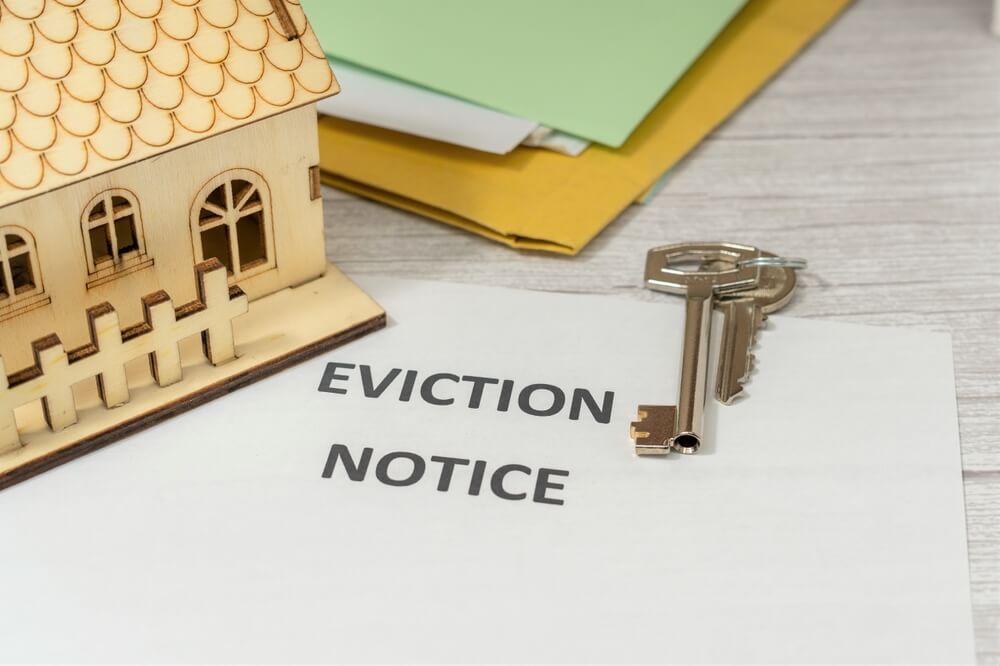
In the current housing crisis, we are receiving a lot of enquiries from landlords seeking to evict tenants and from tenants who are facing eviction from their homes.
Many landlords try to obtain possession of their properties by using the “no fault” possession procedure, relying on a “section 21” notice of seeking possession.
However, landlords can get caught out when doing this, as there are particular rules that need to be followed when trying to evict tenants under this procedure.
Below, we have set out some of the most common issues that arise in this area.
Tenancy deposit
It is common practice for landlords to ask potential tenants to pay a tenancy deposit before moving into a new property.
When a landlord or agent receives a deposit from a tenant there are certain rules they need to follow to protect the deposit and to give certain information to the tenant about the deposit protection scheme. This must all be done within particular timeframes. If the rules are not followed (and the deposit is not paid back to the tenant) then any section 21 notice will not be valid and a landlord will not be able to use the “no fault” eviction route to evict the tenant.
In one of our recent cases, a third party had paid the deposit on behalf of our client, but the agent and landlord had not provided the prescribed information in relation to the deposit to the third party. This was a breach of the rules. Unfortunately, a Possession Order had already been made by the time the client got in touch with us. Therefore, we had to help him make an application to set aside the Possession Order. Within that application, we argued that the Possession Order should not have been made because of this breach of the rules. The landlord eventually conceded the case and agreed that the Possession Order should be set aside.
Selective Licensing
If the property is within a selective licensing area, then the landlord must have obtained or applied for a licence from the local authority for any section 21 notice to be valid.
One of our clients had received a section 21 notice and after careful checking of the claim papers and the local authority register, we noted that the property was not licensed and the landlord had not yet made an application for a licence. We helped the tenant to put in a defence on this basis, and the court dismissed the claim.
Gas Safety Certificate
For tenancy agreements granted or renewed after 1 October 2015, the landlord or agent must have given the tenant a current gas safety certificate before the section 21 notice is issued.
If checks are carried out whilst the tenant is living at the property, the landlord or agent must provide the new gas safety certificate to the tenant within 28 days of the check being carried out. In addition, a landlord should provide a gas safety certificate to the tenant before they move into their new home.
As of the date of this article, it remains unclear as to whether a landlord will have complied with the rules if the gas safety certificate that covers the start date is later provided to the tenant.
If the gas safety certificate rules are not followed, then any section 21 notice will not be valid.
In one of our cases, the landlord had carried out gas safety checks and had provided gas safety certificates to the tenant throughout the tenancy.
However, they had failed to provide a gas safety certificate that covered the start date of the tenancy – the first one was dated 14 days after the tenancy commenced. No other gas safety certificate was provided. At court, this defence was raised, and the judge refused to issue a Possession Order.
Other rules
There are many other rules that landlords must follow to ensure that a Section 21 notice of seeking possession is valid, and it is important for landlords and tenants alike to obtain expert legal advice on their rights and obligations.
If you are a landlord seeking advice on how to lawfully evict an occupier, or you are a tenant wanting help to stop an eviction, please contact us to see if we can help. You can email us at enquiries@tvedwards.com or call us on 020 3440 8000.
Frequently Asked Questions
No fault possession refers to a situation where a landlord can take back possession of their property without having to prove any fault on the part of the tenant, such as rent arrears or damage to the property.
The new law on no fault eviction in the UK aims to abolish Section 21 notices under the Housing Act 1988, which previously allowed landlords to evict tenants without a reason after their fixed-term tenancy period ended. This change is part of broader reforms to create a fairer rental system.
The duration of a no fault eviction process can vary, depending on the notice period required and any potential legal proceedings. However, under the previous Section 21 rules, landlords had to give tenants a minimum of two months’ notice, but this timeframe could be longer with the new reforms.
Disclaimer: The information on the TV Edwards website is for general information only and reflects the position at the date of publication.








